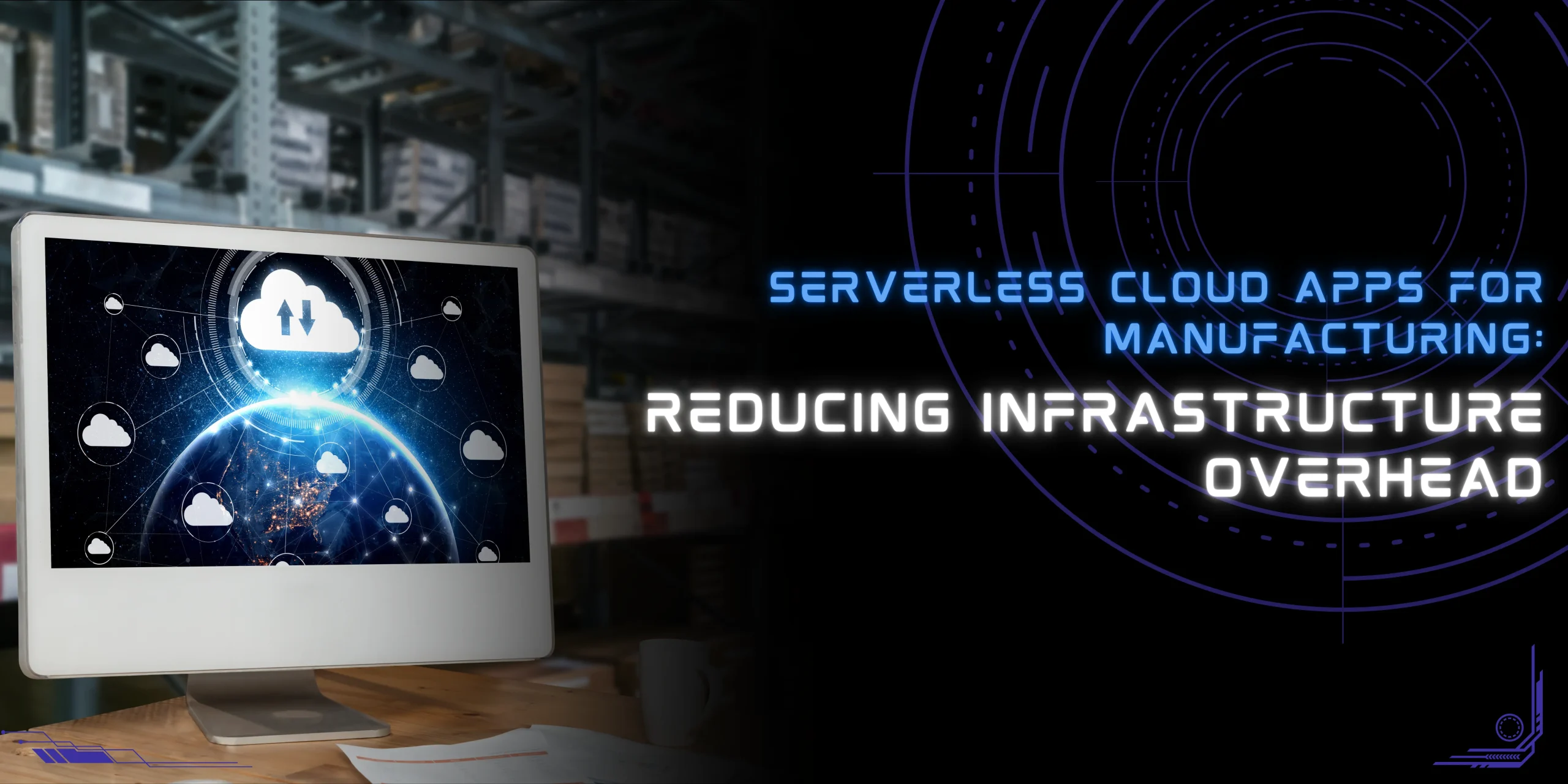September 30th, 2025
Category: Cloud Computing,Manufacturing
No Comments
Posted by: Team TA

Driven by the need for efficiency and innovation, the manufacturing sector has undergone continual growth through automation, digitization, and sustainability. From robotics and IoT integration to supply chain optimization and green practices, manufacturers have embraced new technologies to meet changing consumer demands and global market pressures. These shifts have not only improved productivity but also created opportunities for customization and collaboration across the industry.
With serverless cloud apps emerging as a game-changer, cloud-based applications are currently speeding up this transition. They facilitate quicker deployment cycles and operational agility by lowering infrastructure overhead, enabling scalability, and guaranteeing cost effectiveness. With manufacturing accounting for around 14% of revenue in 2025, the serverless apps market is expected to reach USD 149.9 billion by 2035, according to Future Market Insights, proving its increasing importance in this industry.
What are Serverless Cloud Applications in Manufacturing?
Serverless cloud applications in manufacturing are built on function-as-a-service (FaaS) models, which eliminate the need to maintain complicated infrastructure or physical servers. They enable manufacturers to deploy applications more rapidly, cut expenses, and scale operations more quickly. Manufacturers acquire agility, increase productivity, and simplify operations flexibly and economically by concentrating solely on application functions while the cloud provider manages infrastructure.
Cloud-Based Manufacturing
Cloud manufacturing is a modern approach that transforms conventional production using cloud computing, IoT, AI, data analytics, and automation. This allows manufacturers to optimize resources, adjust to changes in the market, and scale operations rapidly. Manufacturers can work together with suppliers, partners, and customers in real-time, increasing supply chain efficiency and cutting down on delays.
Beyond teamwork, cloud manufacturing uses data analytics to improve quality control, predictive maintenance, and decision-making. By eliminating costly infrastructure and providing pay-as-you-go flexibility, it also reduces costs. This strategy guarantees effectiveness, competitiveness, and responsible manufacturing with the added advantages of sustainability through resource optimization.
5 Major Advantages of Serverless Cloud Apps for Manufacturing
- By eliminating the need for expensive on-premises hardware, cloud manufacturing software helps businesses cut expenses and streamline operations.
- Instead, the provider hosts the resources, which ensures automatic updates and reduces energy and maintenance costs.
- Additionally, it provides scalability, enabling producers to modify their resources in response to demand without incurring additional costs.
- Manufacturers benefit from predictable expenses and avoid significant upfront costs when they use subscription-based pricing.
- Cloud software improves flexibility, simplifies IT administration, and frees up manufacturers to concentrate on their core business.
How do Serverless Systems Reduce Operational Overhead?
By transferring infrastructure management, scaling, and security responsibilities to cloud providers, serverless systems lower operating overhead. Platforms like AWS Lambda or Google Cloud Functions take care of provisioning and capacity planning automatically, saving developers from maintaining servers, applying patches, or setting up scaling rules. This reduces the risk of downtime and makes it simpler to handle erratic workloads, like file processing or API requests.
By providing integrated logging, monitoring, and automatic runtime updates, they also lower maintenance. Databases with automated scaling and backups, such as AWS DynamoDB, make operations even simpler. Cost effectiveness is another important advantage: serverless apps only charge for the actual compute time they use, scaling to zero when not in use. Serverless systems reduce expenses, improve agility, and free up teams to concentrate on developing features rather than maintaining infrastructure by getting rid of unused resources and monotonous infrastructure chores.
6 Prebuilt Serverless Cloud Apps for Manufacturing?
Manufacturers can use prebuilt serverless cloud apps as ready-to-use tools to increase productivity, optimize workflows, and make better decisions. Six important examples are provided below:
- Generate Forecasts for Product Categories: Enables managers to distinguish between high and low performers by providing comprehensive demand visibility across product hierarchies.
- Generate Forecasts for Key Revenue Measures: This feature makes it possible to predict important revenue metrics, which aids in margin management and profitability.
- Map Fields with the Object Hierarchy Mapping Package: This makes data setup easier by mapping fields between sales agreements, opportunities, and rebate objects.
- Debug Data Processing Engine Definitions: Facilitates customization, testing, and troubleshooting by offering visual debugging of DPE nodes.
- Register Products and Assign Warranties Quickly: Enables sales teams to effectively assign warranties, register products, and connect them to accounts.
- Determine Actuals for Sales Agreements: This feature enhances accuracy and planning by automating revenue and quantity calculations for sales agreements.
5 Ways Cloud Based Manufacturing Changing the Traditional Processes
Connected Ecosystems: Facilitates real-time communication between partners, customers, suppliers, and manufacturers for more efficient supply chains and quicker innovation.
Digital twins: Produce virtual copies of assets to facilitate process optimization, remote monitoring, and predictive maintenance.
Edge Computing: Minimizes delays and facilitates quicker decision-making by processing data closer to its source.
Additive Manufacturing (3D Printing): Enables quick prototyping, personalization, and production waste minimization.
Cybersecurity: By using sophisticated authentication, encryption, and monitoring, it improves the protection of data and systems.
Companies that have Successfully Adopted Serverless Cloud Manufacturing
Several global companies have adopted cloud manufacturing to increase productivity, enhance teamwork, and streamline operations.
General Electric (GE): By strengthening supply chain management, enhancing supplier collaboration, and streamlining production, GE was able to reduce costs and increase efficiency.
Adidas: Adidas accelerated time-to-market for customized products, enhanced demand forecasting, and increased customization by utilizing cloud systems.
Tesla: To streamline its intricate supply chain, remotely monitor production, and optimize resources for effective scaling, Tesla implemented cloud platforms.
Flex: By using cloud tools to improve coordination across international locations, Flex was able to facilitate faster data exchange, better innovation, and real-time visibility.
Procter & Gamble (P&G): P&G used cloud manufacturing to improve supplier cooperation, optimize inventory, and obtain supply chain visibility, all of which increased operational efficiency.
Moving Forward
Cloud-based serverless apps are transforming the manufacturing industry, boosting productivity and reducing infrastructure costs. They let companies concentrate on innovation rather than IT management while enabling scalability, cost savings, and enhanced security. These solutions increase the agility and sustainability of operations by removing the need for server maintenance and providing adaptable, pay-as-you-go models.